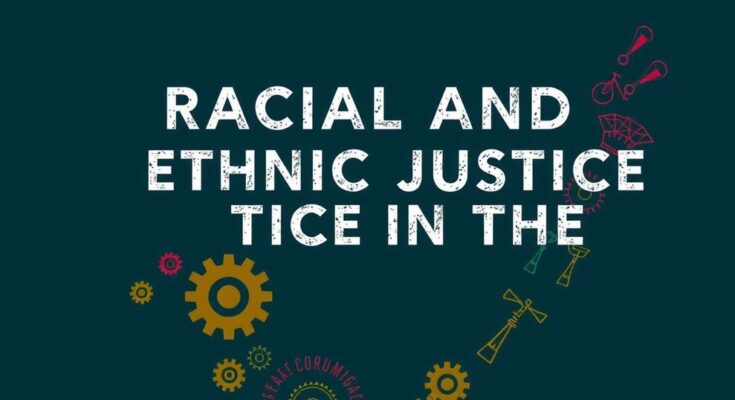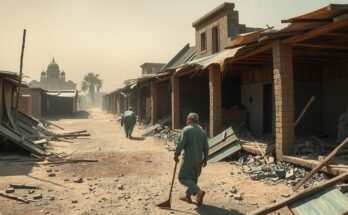The WOLA series emphasizes racial and ethnic justice in protecting human rights in the Americas, highlighting the urgency for the next U.S. administration to address systemic inequalities. The region’s rich diversity faces challenges from structural racism that impacts Afro-descendant and Indigenous communities. WOLA collaborates with these groups to advocate for inclusive policies that honor their rights and contributions, particularly in defending the environment against climate change threats.
The WOLA series titled “A Human Rights Agenda for the Next U.S. Administration” emphasizes the pressing need for racial and ethnic justice as vital to safeguarding human rights across the Americas. As the U.S. looks toward a new administration, WOLA reaffirms its commitment to promoting dignity and justice for every individual in the region. The series serves as a platform to highlight significant human rights challenges that should command attention in policy discussions at this crucial moment. The Americas boast extraordinary diversity, with around 50 million individuals belonging to 826 Indigenous groups who speak over 550 languages. Additionally, more than 200 million are Afro-descendants, along with 3 million Romani individuals. European, African, Indigenous, Arab, and Asian ancestries weave together the region’s identity. However, the legacies of colonialism and the African slave trade have entrenched structural racism and discrimination, nurturing socioeconomic inequities that impact the lives of Indigenous and Afro-descendant communities, often limiting their access to basic human rights. WOLA seeks to tackle these injustices by partnering with Afro-descendant and Indigenous leaders. Recognizing the importance of women, gender, and LGBTQIA+ rights, they strive to align their efforts with the aspirations of marginalized groups. Their initiative aims to elevate the voices of these communities to advocate for policy changes that foster equality and promote human rights advancement throughout the region. The next administration is urged to adopt policies that alleviate entrenched discrimination against Afro-descendant and Indigenous peoples who confront myriad barriers in their pursuit of fundamental rights. Systematic racism manifests itself in various forms, including racial profiling and inadequate responses from justice systems. Past efforts like the U.S.-Brazil and U.S.-Colombia action plans show that regional collaboration can combat economic and social disparities. Additionally, Afro-descendant and Indigenous communities play an essential role in fighting climate change and safeguarding natural environments. Despite their critical contributions, these leaders often face violence for defending their territories. Latin America is notably perilous for environmental rights defenders, underscoring the urgent need to protect these communities amidst growing environmental threats. These groups possess both individual and collective rights, often managing ancestral lands through various frameworks like reserves and councils. They embody unique cultural identities tied to their spiritual practices and artistic expressions. Upholding their rights not only preserves their heritage but also enriches the broader cultural tapestry of the Americas.
The WOLA’s exploration into racial and ethnic justice in the Americas stems from a complex history marked by colonialism and the shackles of slavery. The deep-seated racism ingrained in societal structures poses considerable challenges for Afro-descendant and Indigenous peoples. As the U.S. prepares to usher in a new administration, recognizing and addressing these multifaceted issues is vital for the prosperity and human rights of all individuals in the region. This background sets the stage for understanding the critical policy changes needed to combat lasting inequalities.
In conclusion, for true progress in human rights across the Americas, it is essential to acknowledge and dismantle the structural racism and discrimination faced by Afro-descendants and Indigenous communities. WOLA advocates for inclusive policies that uplift marginalized voices, addressing urgent issues of inequality and promoting both individual and collective rights. By recognizing the vital contributions and cultural richness of these communities, the path can be forged toward a more equitable and just society for all.
Original Source: www.wola.org



